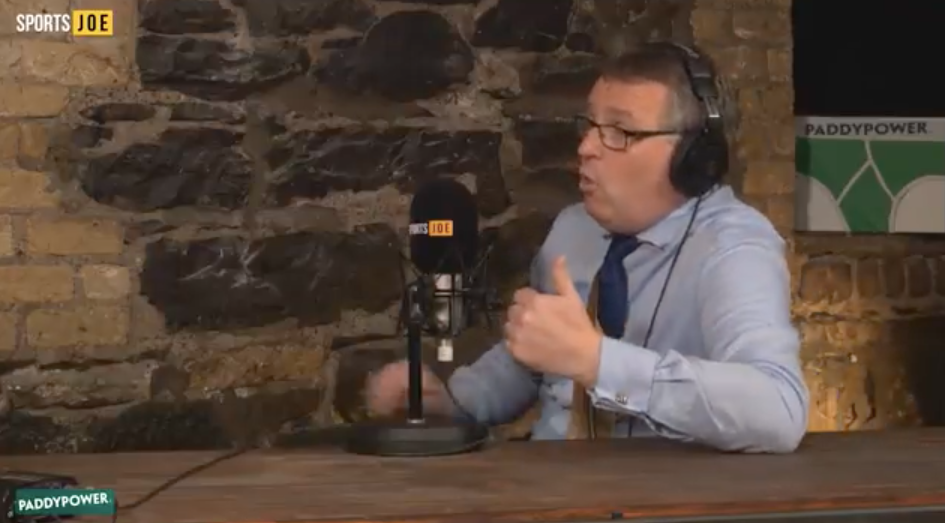

Share
21st September 2018
05:55pm BST

 McBennett's arrival saw quotes spread like wildfire that the new head would no longer be tolerating personal attacks on any of the channels and, to define that, he has a very simple standard.
McBennett's arrival saw quotes spread like wildfire that the new head would no longer be tolerating personal attacks on any of the channels and, to define that, he has a very simple standard.
"[A personal attack is] something that's not either information-based or informed opinion," he explained. "If a pundit or an analyst or a co-commentator comes on RTÉ and says 'I don't think that manager is good enough to win because they've conceded 11 goals in the course of the league, they are defensively suspect and, if you look at the other three teams left in the semi-finals, they've conceded one goal, three goals and four goals', then I think that's a perfectly legitimate criticism. It's informed and there's a degree of fact behind it. "If somebody wants to go off and say the same manager is a clown or he doesn't know what he's doing, it's not informed and there's no fact behind that."So, to set the bar for analysts on The Sunday Game and, indeed, any RTÉ Sport show, McBennett says "there are three criteria in my head to get a seat on an RTÉ panel." It means you have to have three of the following: 1. Credibility "You have to have some form of record behind you that says this individual, male or female, is absolutely credible." 2. Informed opinion "You have to have an informed opinion that elevates you above what I'm going to hear in the pub or the terrace or something like that. That you're bringing something that either informs or educates the audience that is watching. 3. Ability to articulate opinion "Many people who don't work in a broadcast environment won't understand that, in some cases, you may get 20 seconds or 30 seconds to form the point you want to make. You have to have the ability to do that. There are a lot of people around the country who are very, very knowledgable but you put them in a broadcast environment and ask them to articulate their point in 30 seconds with lights on them, with cameras on them and someone screaming in their ear that we're going to an ad break and that becomes very difficult for them." These are the standards to "get a chair". "You have to have an informed opinion as opposed to opinion for opinion's sake that you think is just going to grab headlines. Or you have to have information-based analysis." 2019 will be interesting. Listen to the full interview below.
Explore more on these topics: